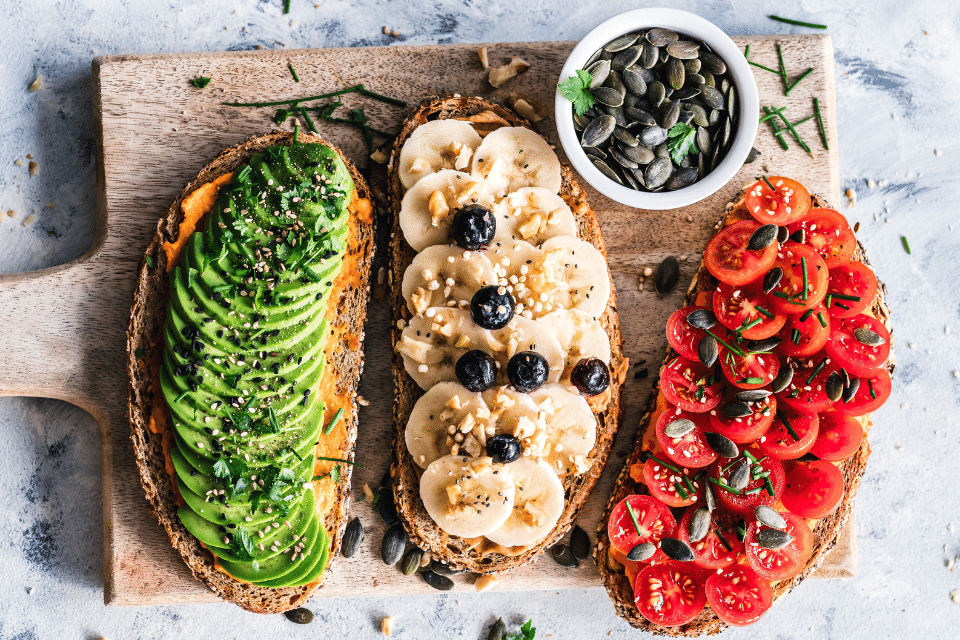What is a Plant-based Diet?
There is no set definition of a “plant-based” diet. The concept of “plant-based” might range from the exclusion of all animal products, to a diet rich in produce and whole grains, with the inclusion of fish, poultry, and yogurt. Some plant-based diets may also eliminate ultra-processed ingredients such as flours, sugars, and some refined oils; only allowing whole food or minimally processed plants. Plant-based diets have also been referred to as vegan, vegetarian diets, semi-vegetarian, or pescatarian-vegetarian diets. (1)
Plant Selection Matters
It is important to note that not all plant foods have the same health benefits. In fact, some plant-based foods may offer little nutritional benefit. (Potato chips, I’m looking at you!) When it comes to the health benefits of good nutrition, it is the overall diet pattern that matters. In other words, it’s not the occasional treat that impacts your health, but rather what you eat the majority of the time.
The Mediterranean diet eating pattern, which is rich in whole food ingredients like fresh fruits and vegetables, whole grains, nuts, legumes, olive oil, fish and seafood, with some dairy, eggs, and poultry, is the best-researched diet pattern associated with a reduced risk of many chronic diseases.(2)
Benefits of a Plant-based Diet

Randomized controlled trials and epidemiological studies indicate that plant-based diets, particularly vegan diets, are associated with lowering risk and incidence of heart disease, high blood pressure, elevated blood fats, type 2 diabetes, as well as reducing medication needs and supporting weight management. (3)
Plant Intake and Gut Health
A diet that consists of a variety of different plants rich in various prebiotics (food for our gut microbes) such as polyphenols, fibers, and resistant starch, is likely the best way to support a diverse and healthy gut microbiome. The microbes of our gastrointestinal tract play a key role in health and disease risk. The diversity of microbes appears to be associated with better health. Did you know that we each have our very own gut microbial fingerprint? Our diet helps shape which microbes live and grow best in our gut. (4)
The American Gut Project, a crowd-sourced, science-based data collection comprised of over 10,000 gut microbiome samples, was co-founded in November 2012 by Rob Knight, Ph.D., Jeff Leach, and Jack Gilbert, Ph.D. The goal of this project is to improve our understanding of human microbiomes — which types of bacteria live where and how they are influenced by our diet, lifestyle, and disease. The American Gut Project data has revealed that the number of different plant types in a person’s diet plays a key role in the diversity of his or her gut microbiome (the number of different microbes that reside in the gut). Study participants who consumed greater than 30 different plant foods per week had a greater diversity of the microbes in their gut compared to those that consumed 10 or fewer different plants. Greater consumption of plant-based foods was associated with a reduction in certain antibiotic resistance genes as well. Being resistant to antibiotics can place us at greater health risk should we require antibiotics for an infection. (4) Just a couple more reasons to up the variety of plants and whole grains in your diet.
My Favorite Plant-based Epicured Selections
These menu items contain 6 or more whole plant food ingredients! Eating just 4-5 of these Epicured menu selections is an easy and delicious way to boost plant diversity in your diet!
|
Gluten free oats, Almonds, Unsweetened Coconut flakes, Flaxseeds, Dried cranberries, Peanut Butter |
|
|
Edamame Soybeans, Soba Noodles (whole buckwheat flour), Red Cabbage, Green Cabbage, Cucumber, Carrots, Cilantro, Peanut Butter, Scallions |
|
|
Cherry Tomatoes, Quinoa, Grapes, Parsley, Almonds, Kale, Mint, Basil |
|
|
Red Bell Pepper, Bean Sprouts, Carrots, Green Cabbage, Choy Sum, Oyster Mushrooms, Scallions (green tops only), Black Beans, Ginger |
|
|
Tomatoes, Quinoa, Red Bell Pepper, Yellow Bell Pepper, Carrots, Parsley, Celery, Scallions, Celery Root, Parsnips, Thyme, Rosemary. |
|
|
Kabocha Squash, Quinoa, Lentils Broccoli, Brussels Sprouts, Carrots, Kale, Parsley, Dried Cranberries, Pumpkin Seeds, Mint |
|
|
Cherry Tomatoes, Spaghetti Squash, Zucchini, Arugula, Kalamata Olives, Pumpkin Seeds, Basil, Chives, Pine Nuts, Parsley. |
|
|
Brown Rice, Black Beans, Cucumber, Red Bell Pepper, Yellow Bell Pepper, Romaine Lettuce, Cherry Tomatoes, Red Radish, Cilantro, Jalapeno Pepper. |
|
|
Bomba Rice, Scallions, Eggplant, Zucchini, Green Beans, Red Bell Pepper, Tomatoes, Parsley, Pine Nuts, Thyme, Rosemary, Carrots, Celery Root, Parsnips. |
|
|
Gluten Free Rolled Oats, Quinoa, Dried Cranberries, Almonds, Flaxseeds, Coconut Oil, Chia Seeds, Shredded Coconut, Puffed Brown Rice. |
|
|
Peanuts, Pumpkin Seeds, Pecans, Walnuts, Coconut Flakes, Sunflower Seeds, Raisins, Almonds |
Here’s to eating more plants!
References:
- Williams KA, Patel H. Healthy Plant-Based Diet: What Does it Really Mean? J of the American College of Cardiology 2017; 70(4):423-425.
- Sofi F, Macchi C, Abbate R, et al. Mediterranean diet and health status: an updated meta-analysis and proposal for a literature-based adherence score. Public Health Nutr 2014; 17(12):2769-82.
- Hever J, Cronise RJ. Plant-based nutrition for healthcare professionals: implementing diet as a primary modality in the prevention and treatment of chronic disease. J Geriatr Cardiol. 2017;14(5):355–368. Free access here.
- Grieneisen LE, Blekhman R. Crowdsourcing Our National Gut [published correction appears in mSystems. 2018 Jul 10;3(4):]. mSystems. 2018;3(3):e00060-18. Published 2018 May 15. doi:10.1128/mSystems.00060-18. Free access here.



